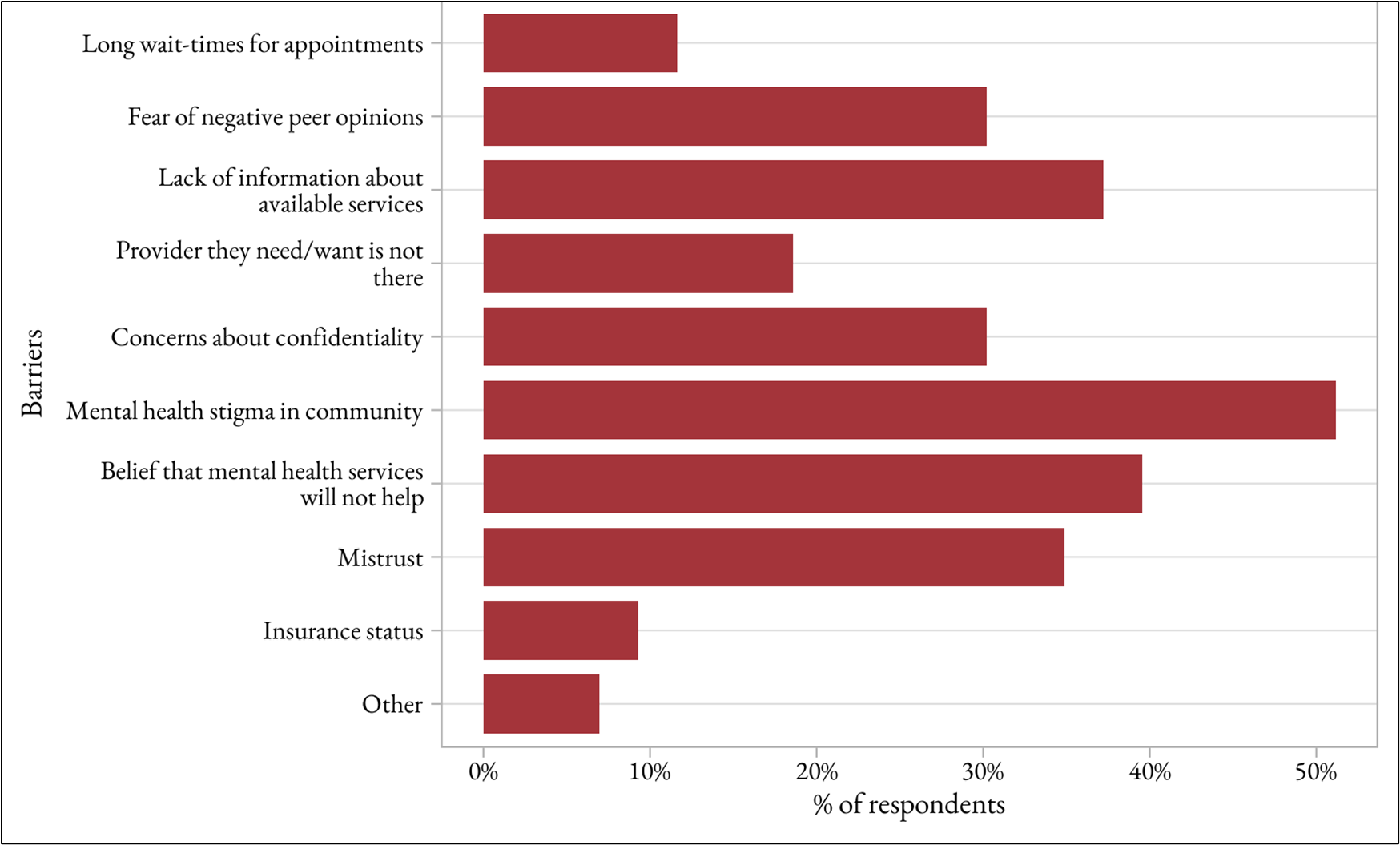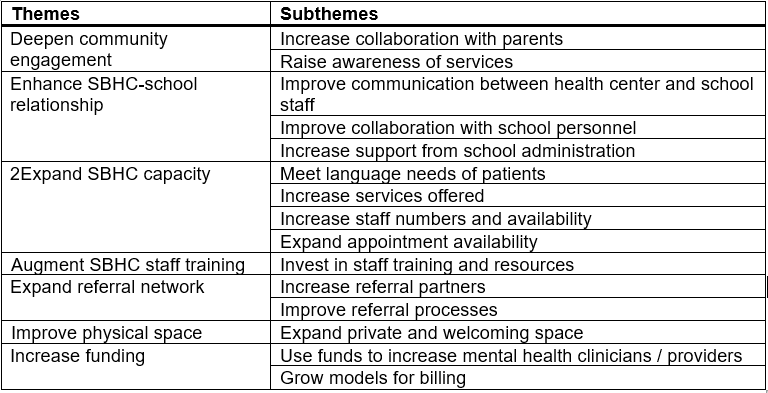Mental Health 1
Session: Mental Health 1
751 - Barriers and opportunities for mental health care delivery in Illinois school-based health centers
Saturday, April 26, 2025
2:30pm - 4:45pm HST
Publication Number: 751.3810
Anna Volerman, University of Chicago, Chicago, IL, United States; Hannah E. Huebner, University of Chicago Division of the Biological Sciences The Pritzker School of Medicine, Chicago, IL, United States; India Williams, University of Chicago Division of the Biological Sciences The Pritzker School of Medicine, Aurora, IL, United States; Alexandra Knitter, University of Chicago Division of the Biological Sciences The Pritzker School of Medicine, Chicago, IL, United States; Julia Howland, Illinois Department of Public Health, Chicago, IL, United States; Miranda Scott, Illinois Department of Public Health, Springfield, IL, United States; Andie Baker, EverThrive IL, Chicago, IL, United States; Kristen Nuyen, EverThrive Illinois, Chicago, IL, United States

Anna Volerman, MD (she/her/hers)
Associate Professor
University of Chicago
Chicago, Illinois, United States
Presenting Author(s)
Background: Youth in the United States are facing a mental health crisis. Minority and low-income groups are disproportionately impacted and face additional barriers to mental health services. School-based and school-linked health centers (SBHCs) deliver essential mental health care to underserved populations, including in Illinois where 79% of SBHC patients are people of color and 84% are Medicaid-enrolled or uninsured.
Objective: We examined barriers to mental health care in Illinois SBHCs and identified opportunities to improve access and delivery.
Design/Methods: In this community-academic partnered study, a survey was distributed to all 66 certified SBHCs in Illinois in spring 2024. The survey included questions about challenges and opportunities for youth mental health care delivery. Analysis included descriptive statistics and thematic analysis.
Results: Responses from 46 SBHCs (70%) were split between administrators (48%) and clinicians (52%). SBHCs were in Chicago-Cook County (63%), Chicago collar (8.7%), non-Chicago urban (13%), and rural (15%) regions. All SBHCs served students in their affiliated school, while 43% served students’ families and 39% served community members.
Respondents reported several barriers prevented students from seeking mental health care at SBHCs, including community or family stigma (51%), belief services would not help (40%), lack of information about services (37%), and mistrust (35%). While all SBHCs offered mental health services, capacity varied greatly due to staffing and resource constraints. Most respondents indicated SBHCs were adequately resourced for mental health care (64%) and staffed to provide quality services to students (77%).
Respondents identified specific improvements needed for care models, including streamlining workflows and documentation, investing in staff training and resources, and expanding internal services and external referral networks. They also highlighted opportunities to strengthen collaborations with families and schools. Despite most reporting adequate resources and staffing, respondents detailed systemic changes needed to overcome capacity constraints, including expanding billing models, increasing staff numbers and availability, and employing more bilingual providers.
Conclusion(s): SBHCs shared challenges in care delivery and identified opportunities to strengthen partnerships, increase funding, and expand capacity to address mental health needs of Illinois youth. Findings offer valuable insights into current gaps and point to targeted actions for SBHCs to enhance mental health access and care.
Figure: Barriers to seeking mental health services at Illinois school-based health centers (SBHCs), as identified by SBHC administrators and clinicians (N=46 SBHCs / respondents)

Opportunities to improve mental health care delivery for students in school-based health centers (SBHCs), based on survey of Illinois SBHC administrators and clinicians


